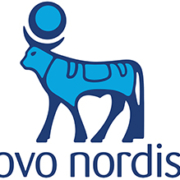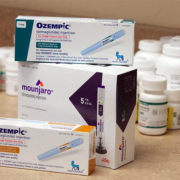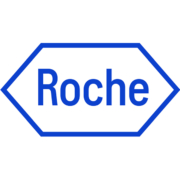Angion ends kidney disease trial while Novo hits NASH wall
Angion ends kidney disease trial while Novo hits NASH wall
Shares of Angion Biomedica Corp. are falling fast after the company announced it had discontinued a mid-stage study of an oral tyrone kinase inhibitor in patients with primary proteinuric kidney diseases due to safety reasons.
New York-based Angion said the Phase II JUNIPER study will be halted “in the interest of patient safety based upon a reassessment of the risk/benefit profile of AG-3070 in patients with established serious kidney disease.”
ANG-3070 is the company’s experimental TKI. The JUNIPER trial was assessing ANG-3070 in patients with primary proteinuric kidney diseases, specifically focal segmental glomerulosclerosis (FSGS) and immunoglobulin A nephropathy (IgAN).
Angion said it pulled the trigger on discontinuing the trial following the “unexpected and substantial decline in kidney function” in one of the patients who received ANG-3070. The company said it conducted an analysis that included several factors, such as the evaluation of known side effects with the TKI drug class, as well as an analysis of the blinded patient data that showed no early treatment signals that indicate a reduction in proteinuria, the presence of abnormal levels of protein in the urine. Based on this data, Angion felt it was best to discontinue the JUNIPER study.
Investors have reacted negatively, as expected. Shares of Angion closed at $1.71 on Wednesday. The stock was down more than 26% in premarket trading to $1.25 on Thursday.
“Based on our ongoing analysis of the risk/benefit profile of ANG-3070 in patients with primary proteinuric kidney disease, we believe it to be in the best interest of patients to discontinue our Phase II JUNIPER study at this time, notwithstanding the significant unmet need for new therapies in this patient population,” Jay Venkatesan, Angion’s president and chief executive officer said in a statement. “We are, of course, disappointed by today’s announcement and have made the decision to deprioritize the study of ANG-3070 in patients with established serious kidney disease. We will continue to evaluate the potential of ANG-3070 as a treatment for patients with idiopathic pulmonary fibrosis, as well as to consider all strategic and operational options for Angion and its pipeline going forward.”
Angion said it expects to have about $60 million available in cash and cash equivalents by the end of the second quarter.
Novo’s Ozempic Seems Mixed Results in NASH
Angion wasn’t the only company to see a setback. Novo Nordisk also hit a wall in the increasingly-frustrating nonalcoholic steatohepatitis (NASH) space. The company reported that its diabetes drug Ozempic (semaglutide) failed to hit the mark in the improvement of liver fibrosis in NASH-related cirrhosis. First reported by Medpage Today, Ozempic was outperformed by placebo in a Phase II study. Data showed that only 10.6% of patients who were treated with Ozempic saw an improvement in liver fibrosis without a worsening of disease-related symptoms. The placebo fared much better, with these patients seeing a 29.2% improvement in their conditions.
Data were presented at the European Association for the Study of the Liver conference. While the primary endpoint of the study was missed by a wide margin, Ozempic did make a mark in a secondary endpoint. Data showed that 34% of patients who received Ozempic saw a resolution of NASH, an improvement in liver inflammation, compared to 20.8% of placebo patients. Treatment with Ozempic also led to a reduction in triglycerides and low-density lipoprotein cholesterol.
Additionally, treatment with Ozempic led to improvements in liver steatosis and enzyme levels and also significantly decreased body weight and improved HbA1c levels in patients with type 2 diabetes.
Source: BioSpace











